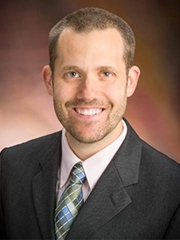Multidisciplinary Task Force Develops Clinical Recommendations for Rare, Life-Threatening Hyperinflammatory Syndromes
Published on
Published on
 Scott W. Canna, MD
Hemophagocytic lymphohistiocytosis (HLH) and macrophage activation syndrome (MAS) are overlapping hyperinflammatory syndromes that involve disorganization and malfunction of the immune system, leading to widespread inflammation and organ damage. The conditions can progress rapidly, making early identification and management key for preventing organ failure and death.
Scott W. Canna, MD
Hemophagocytic lymphohistiocytosis (HLH) and macrophage activation syndrome (MAS) are overlapping hyperinflammatory syndromes that involve disorganization and malfunction of the immune system, leading to widespread inflammation and organ damage. The conditions can progress rapidly, making early identification and management key for preventing organ failure and death.
To help with early diagnosis, an international group of experts recently published a series of “points to consider” guidance statements for clinicians to consider in the early stages of diagnosis, treatment and monitoring for these serious conditions. The findings and subsequent statements were recently published in the journal Arthritis and Rheumatology.
Led by experts from the Children’s Hospital of Philadelphia (CHOP) Immune Dysregulation Program, as well as patients and their families, the multidisciplinary task force of rheumatologists, hematologists and oncologists, infectious disease specialists and others conducted a thorough literature review and formulated a series of important research questions based on experience.
The task force developed overarching statements and specific points-to-consider relevant to early recognition of HLH and MAS, diagnostic approaches, initial management and monitoring of the syndromes. Major themes included assessing for the presence and severity of HLH/MAS, investigating for relevant contributors, treating both the syndrome and its contributors, monitoring for progression and potential complications, and seeking expert multi-disciplinary assistance.
“Nearly everything about HLH/MAS, diagnosis, treatment, even what to call it, can be frightening and confusing,” said co-senior author Scott Canna, MD, an attending physician in the Division of Rheumatology and the Immune Dysregulation Program at CHOP. “This project required resolving the varied and strongly held viewpoints of the physicians, scientists, nurses, and patients, representing multiple adult and pediatric specialties, that made up our task force. We were committed to producing something useful and we hope front-line clinicians and sub-specialists will find the outcome both clarifying and useful.”
Contact: Ben Leach, The Children’s Hospital of Philadelphia, 267-426-2857 or leachb@email.chop.edu